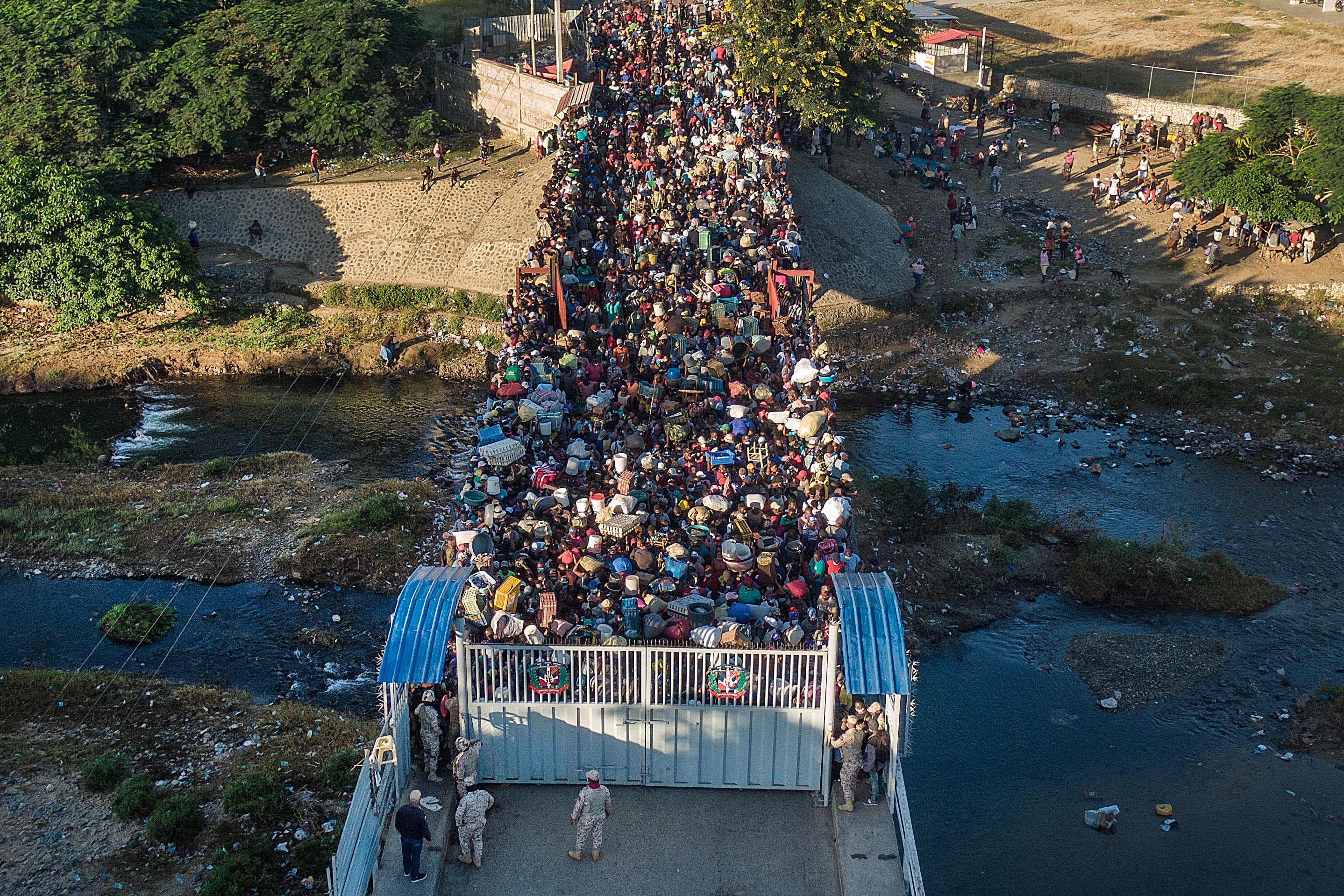Dominican Republic rejects criticism of Haitian deportations
The Dominican Republic said it “profusely rejects” the denunciation of its crackdowns on Haitian migrants by a growing number of countries and human rights agencies

Your support helps us to tell the story
From reproductive rights to climate change to Big Tech, The Independent is on the ground when the story is developing. Whether it's investigating the financials of Elon Musk's pro-Trump PAC or producing our latest documentary, 'The A Word', which shines a light on the American women fighting for reproductive rights, we know how important it is to parse out the facts from the messaging.
At such a critical moment in US history, we need reporters on the ground. Your donation allows us to keep sending journalists to speak to both sides of the story.
The Independent is trusted by Americans across the entire political spectrum. And unlike many other quality news outlets, we choose not to lock Americans out of our reporting and analysis with paywalls. We believe quality journalism should be available to everyone, paid for by those who can afford it.
Your support makes all the difference.The Dominican Republic said it “profusely rejects” the denunciation of its crackdowns on Haitian migrants by a growing number of countries and human rights agencies.
Amid intensifying turmoil in Haiti due to a gang blockade of fuel supplies and a cholera outbreak, Dominican authorities have ramped up border enforcement and deportations of Haitians, which they have said is crucial to national security.
Authorities say they deported 43,900 migrants, largely Haitians, between July and October. In September and October alone, deportation figures shot up by about 50%.
The government's actions have sparked heavy criticism in recent weeks from Haiti, the U.N. human rights chief and the United States.
On Saturday, the U.S. Embassy in the capital of Santo Domingo sent out a warning saying Dominican migration authorities “have carried out widespread operations" to detain largely Haitian migrants who they believe are in the country illegally.
“There are reports that detainees are held in overcrowded detention centers, without the ability to challenge their detention and without access to food or toilets, sometimes for days, before being released or deported to Haiti,” the Embassy wrote.
The Embassy also warned that the government's actions could pose a problem for darker-skinned Americans and African Americans traveling in the Dominican Republic.
Unlike the U.N. and Haiti, however, the U.S. did not explicitly call for the country to halt deportations. President Joe Biden's administration has defended its own practice of deporting and expelling Haitian migrants arriving at its southern border, despite heavy criticism from human rights organizations.
The Dominican Ministry of Foreign Relations lashed back at the criticism on Sunday, saying the American government had “no evidence” of any sort of systematic human rights violations. It also decried what it said was a lack of international support to handle the migration from Haiti.
“The Dominican government never could have imagined there would be such a harsh insinuation made about our country,” the ministry wrote, “much less from an ally that has been subject to accusations of xenophobic and racist treatment of migrants, including in parts of its own population.”
Tensions fueled by migration have simmered for years between Haiti and the Dominican Republic, which share a 240-mile (390-kilometer) border on the island of Hispaniola. But they have only deepened since the 2021 assassination of Haitian President Jovenel Moïse, which thrust an already crisis-stricken Haiti into chaos.
Since then, deportations from the Dominican Republic have ramped up and the country's government has increasingly militarized its border, even beginning construction of a border wall.
Last week, President Luis Abinader called the U.N. human rights chief's recent demand for the end of the deportations “unacceptable and irresponsible." He said his country “has been more affected" by Haiti's problems and steady migration and "more supportive than any other country in the world.”
"You can't ask anything more from the Dominican Republic. ... We're going to continue the deportations and next week we're going to increase them,” he said.